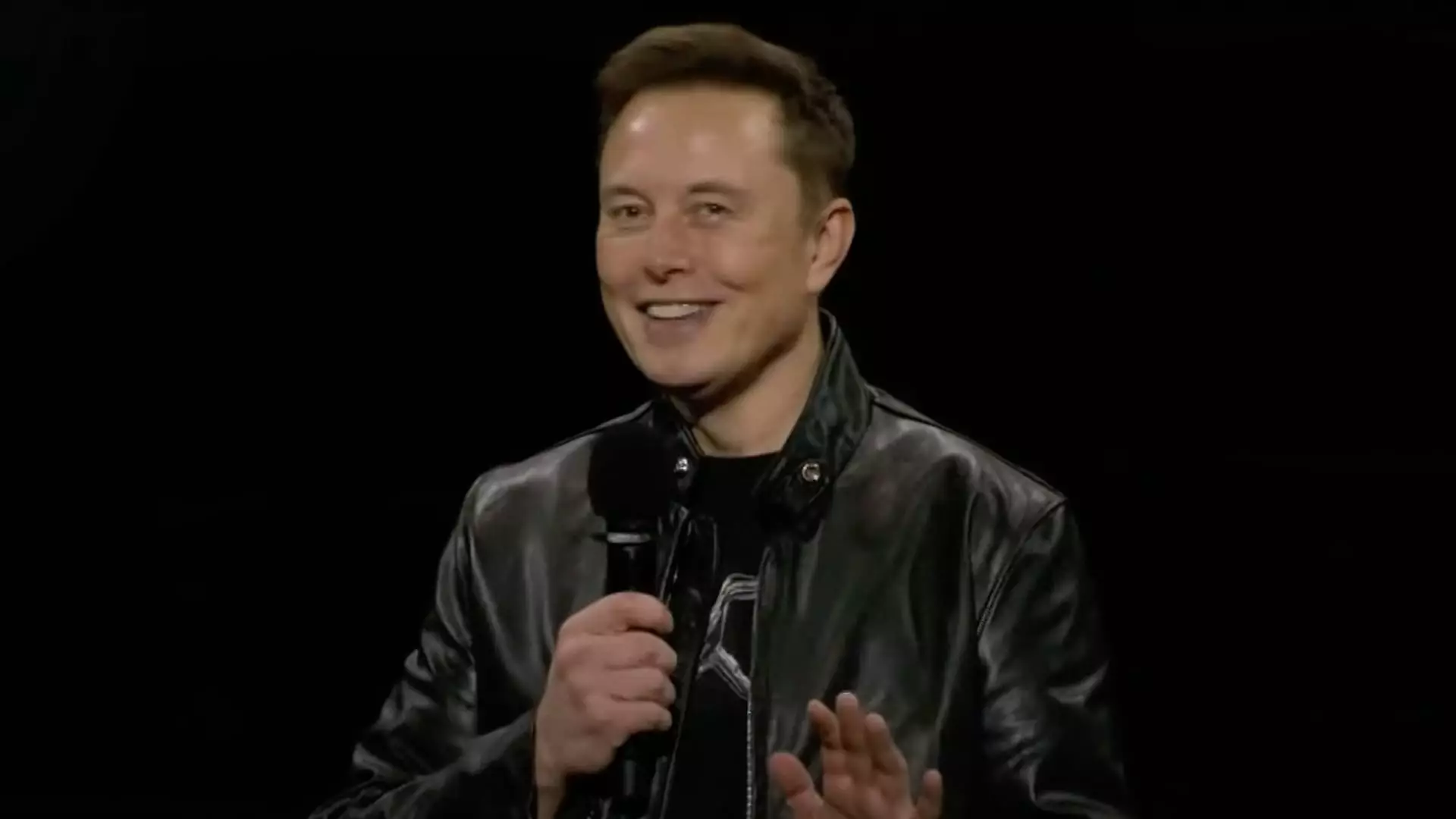Elon Musk, the volatile titan of technology and business, has once again made headlines, not just for his role as CEO of Tesla, but for the seismic shifts in his wealth and the implications of his political involvement. On a recent Thursday, Musk experienced a staggering boost in paper wealth by $26 billion, following Tesla’s remarkable stock rally—the most significant surge the company has seen since 2013. This increase has amplified his net worth to approximately $269 billion, securing his position as the world’s richest individual by a margin of over $50 billion from close associate Larry Ellison, the largest shareholder in Oracle.
Musk’s massive increase in wealth is primarily attributed to Tesla’s better-than-expected earnings report, which sent shares soaring by 22%—the second-largest uptick since its public debut in 2010. The company reported earnings per share of 72 cents, significantly exceeding analysts’ predictions of 58 cents. This positive financial performance was bolstered by substantial revenue generated from environmental regulatory credits and the Full Self-Driving (FSD) system, which accounted for $739 million and $326 million, respectively. Notably, the company’s stock had been facing downward pressure leading up to the earnings call, with forecasts suggesting it was on track for its worst month since January. However, with this unexpected financial upside, Tesla’s stock erased earlier losses, now standing at a commendable 5% gain in 2024, despite the broader market performance of the Nasdaq, which is up 23%.
Musk’s optimism, expressed during the earnings call, included promises of a vehicle growth rate of 20% to 30% for the coming year, further adding buoyancy to investor sentiment. Nonetheless, while these numbers are impressive, questions linger regarding the sustainability of this growth in the face of relentless competition and logistical challenges.
A significant portion of Musk’s remarks leaned heavily on the promise of Tesla’s autonomous future. He touted plans for a forthcoming ride-hailing service anticipated to open to the public in Texas and California as early as next year. Despite unveiling ambitious projects like the Cybercab at Tesla’s robotaxi event, the company has consistently fallen short of its own timelines for product releases. In stark contrast, Alphabet’s Waymo has successfully operated a commercial driverless service since June, illuminating Tesla’s struggles with delivering a fully operational product that doesn’t require a human’s intervention.
Compounding these challenges is the fact that Tesla has yet to produce vehicles deemed reliable for autonomous operation without a human ready to regain control—a far cry from Musk’s claims. While he’s captivated audiences with visions of futuristic transport solutions, investors and the public are growing increasingly skeptical of the practical timelines and safety concerns surrounding Tesla’s autonomous technologies.
In addition to his financial maneuvers, Musk’s recent political activities present another layer to his already complex persona. Since endorsing Donald Trump post-assassination attempt in July, Musk has ramped up his political posturing significantly, including hefty campaign contributions and direct engagement with voters in critical states like Pennsylvania. He even initiated a controversial $1 million daily raffle for registered voters who support his pro-Trump political action committee. However, this initiative has drawn scrutiny from the U.S. Department of Justice, raising concerns about potential violations of federal election laws.
This entanglement of business and politics raises critical questions among stakeholders. Investors are understandably apprehensive as Musk’s vocal activism could divert focus from the core mission of protecting shareholder value. A retail investor voiced concerns on a Tesla forum, remarking on the notion that Musk’s public political activism seemed incompatible with his responsibilities as a CEO.
As Tesla pushes forward, striving to meet ambitious growth targets amidst an increasingly competitive electric vehicle landscape, Musk’s actions will undoubtedly be under the microscope. The interconnectedness of his financial success and heightened political visibility exemplifies the challenges inherent in balancing personal beliefs with corporate responsibilities. Ultimately, maintaining investor confidence and ensuring sustainable business growth during times of turbulence and scrutiny will be crucial for Musk and Tesla’s continued success.
As Elon Musk continues to navigate his dual roles—business magnate and political participant—both his fortune and influence will likely oscillate as they have in the past. The road ahead for Tesla is paved with high expectations and numerous obstacles, while the implications of Musk’s political engagements remain to be fully revealed. The unfolding narrative will be one worth watching as it shapes both his legacy and that of the electric vehicle industry.

